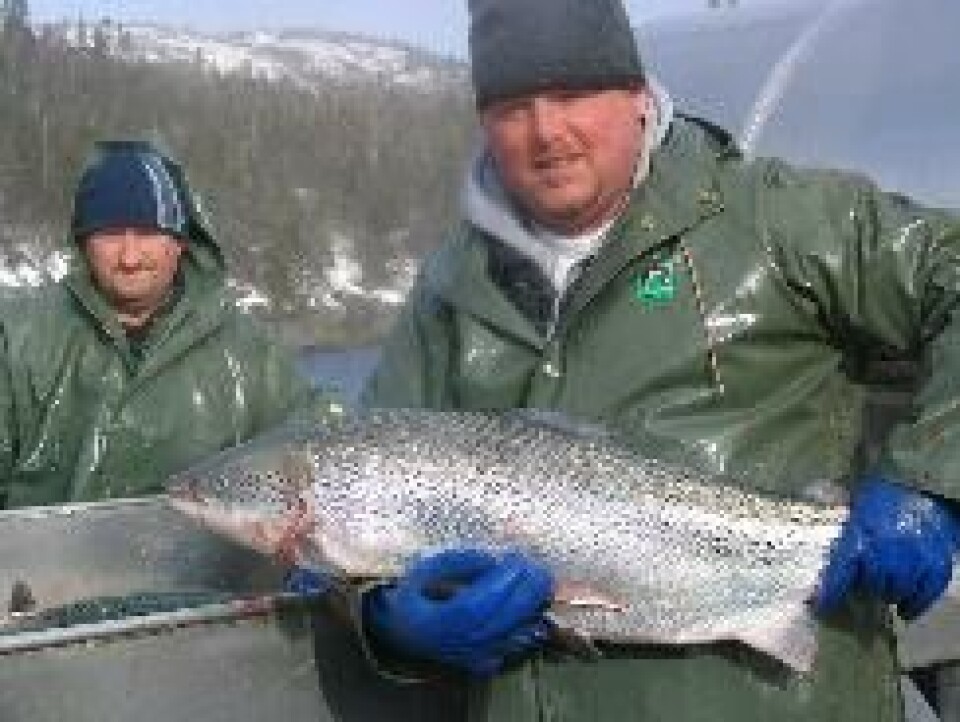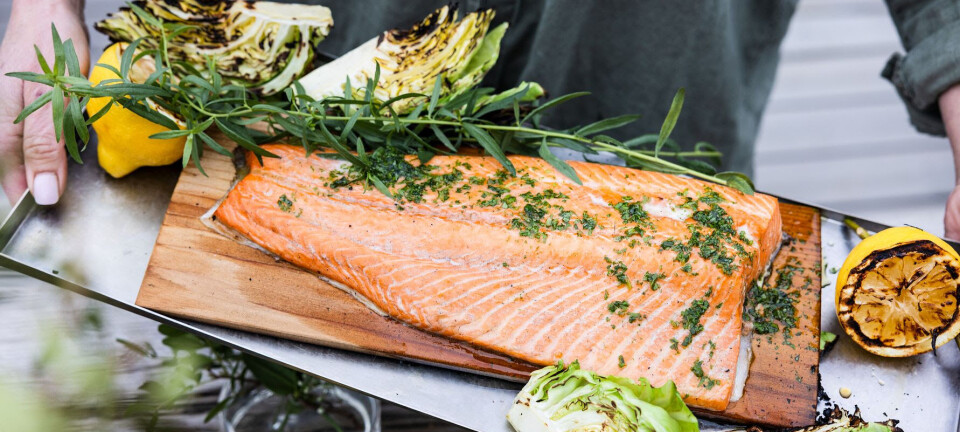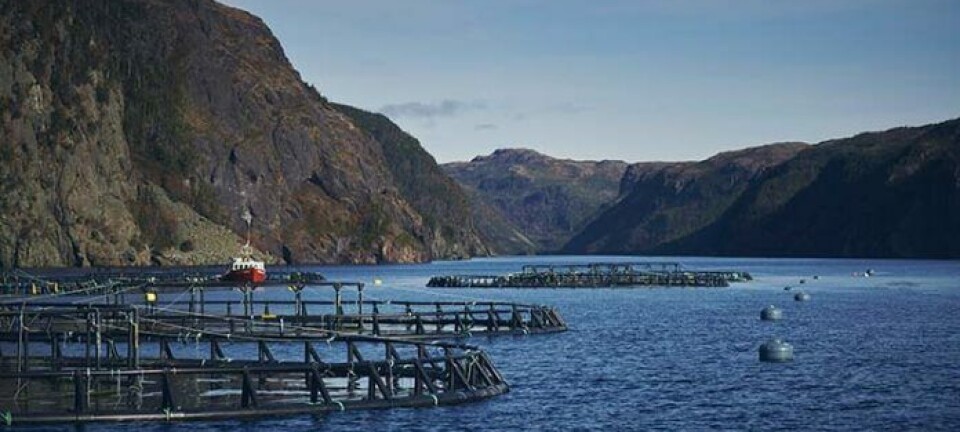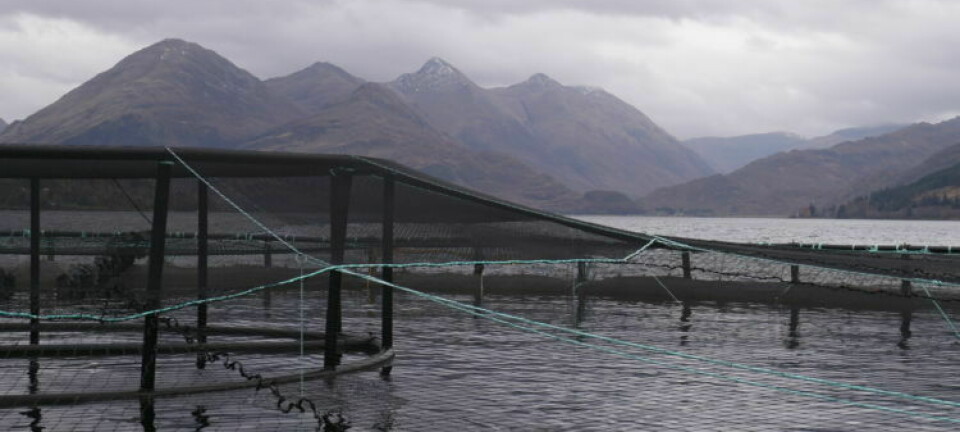
Cooke responds to legal charges
The good news is that lobster fishing in New Brunswick is continuing to show record landings along with the on-going production of thousands of tonnes of farmed Atlantic salmon. This year was also a relatively good year for the return to some of the local rivers by spawning salmon. But unintentionally killed lobsters is not good news for anyone. Officials at Cooke Aquaculture are facing charges for using a chemical to protect their farmed salmon from an unusually intense occurrence of lice on their fish two years ago. The substance can be used across the border in the State of Maine, but it is not yet licensed for use on farmed salmon in Canada. Last week, staff at The Mainebiz News provided the following background;
Canadian company Cooke Aquaculture, the state's largest aquaculture operator, and three of its executives have been charged with using illegal pesticides that killed lobsters. An investigation by Environment Canada found that New Brunswick-based Cooke Aquaculture was connected to lobster deaths off Deer Island and Grand Manan Island, which are a few miles from Maine's border, according to the Bangor Daily News. The lobsters in 2009 were exposed to cypermethrin, a pesticide banned in Canada but allowed with state approval in Maine. On Tuesday, Environment Canada filed 11 criminal charges against Cooke, as well as 11 charges each to CEO Glenn Cooke, Vice President Michael Szemerda and Randall Griffin, a regional production manager for subsidiary Kelly Cove Salmon. The charges of violating Canada's Fisheries Acts are punishable by up to $1 million in fines and three years in prison. Though the pesticide was released into Passamaquoddy Bay, there have been no reports of lobster deaths in Maine.
According to the Department of Marine Resources, Cooke Aquaculture in Maine owns several operations, including Phoenix Salmon U.S. Inc., Cobscook Bay Salmon and Atlantic Salmon of Maine LLC, and holds more than 500 acres in aquaculture leases. Cooke spokeswoman Nell Halse said the company in 2010 used a pesticide that contains cypermethrin in 59 of the 76 cages it has at five Maine salmon sites. She said the company still must review the charges before commenting further.
Late last week, Glenn Cooke issued a statement aimed at company staff, stating among else:“Although I am personally devastated by this action, we must take heart in the knowledge that we are a good company, good neighbours and good people - more than 2,000 people strong. Anyone who has ever worked with us knows that we have an excellent reputation. We are committed to health, science and safety. We have demonstrated our commitment to sustainable operations. We have strong beliefs and values and are focused on the well being of our products, our people, and our communities. We are all custodians of the marine environment and we recognize the importance of the fishery. It is good news for all of us that the lobster fishery continues to experience record landings. We see ourselves as partners in the region's working waterfront and are committed to supporting a vibrant and healthy seafood sector for Atlantic Canada.
I trust this news will not change the way you feel about our company, about your work and our future. My family and I thank you for your hard work and dedication and for helping to make this company the industry leader that it is today. We have a strong future and we have a lot to be proud of. This news does not change any of that”.
The Executive Director of the Atlantic Canada Fish Farmers Association (ACFFA), Ms. Pamela Parker, also recognized that one of the association’s members, Kelly Cove Salmon Ltd., a division of Cooke Aquaculture, was being charged by Environment Canada under the Fisheries Act for depositing deleterious substances in water frequented by fish
“The ACFFA and our member companies have been cooperating fully with Environment Canada since the investigation was launched in 2009. Working alongside those in the traditional fishery, our salmon farmers have built this industry for the past 30 years. Protecting the marine environment where we live and work is a priority for us. Our industry has thrived while at the same time the lobster fishery continues to see record landings. We know that if our farm practices are not sustainable, our fish will not be healthy, and we would not have access to a healthy marine resource for the future. Atlantic Canada’s fish farmers continue to be firmly committed to building a locally based, globally competitive, sustainable aquaculture industry that produces world-class salmon and brings prosperity to our region “.























































